The Importance of Food-Grade Lubrication
Food-grade lubrication is essential for maintaining the safety and hygiene of food processing equipment. These specialised lubricants minimise contamination risks, ensuring that harmful substances do not enter the food supply chain. In an industry where even minimal contamination can lead to product recalls, fines, and reputational damage, the importance of using food-grade lubricants is paramount.
Food-grade lubricants ensure the smooth operation of machinery and equipment used in food processing. By reducing friction and wear, they prevent the shedding of metal particles or other contaminants that could end up in the final product. This helps maintain the integrity of food processing equipment, preventing foodborne illnesses and safeguarding consumer health.
Challenges in Food Industry Lubrication
The food processing industry presents unique challenges for lubrication systems. Extreme temperatures, high pressures, and exposure to water, steam, and chemicals are common. Lubricants must meet stringent purity standards and prevent any leaching or migration into the food stream. Frequent cleaning and sanitation procedures can degrade lubricants, reducing their effectiveness over time.
Types of Food-Grade Lubricants
Food-grade lubricants are categorised into three main types: mineral-based, synthetic, and plant-based lubricants. Each type offers unique properties and advantages, making them suitable for different applications within the food and beverage industry.
- Mineral-based Lubricants: Derived from highly refined petroleum oils, these lubricants are known for their oxidation stability, high viscosity index, and good thermal conductivity. They are suitable for high-temperature and high-pressure applications but are currently falling out of favour, and indeed being legislated out of food industry use, as the world moves to a more sustainable future.
- Synthetic Lubricants: Engineered from chemically modified or synthesised compounds, synthetic lubricants offer superior performance under extreme conditions. They provide excellent oxidation resistance, low volatility, and extended service life.
- Plant-based Lubricants: Derived from renewable sources such as plant oils, these biodegradable and eco-friendly lubricants are ideal for applications with a high risk of incidental food contact or in environmentally sensitive areas. Base oils can be marred by poor performance and rancidity issues, therefore synthetically modified vegetable oils offer the best solution.
Benefits of Proper Lubrication
Effective lubrication extends equipment lifespan, reduces downtime and maintenance costs, and improves energy efficiency. Proper lubrication minimises friction and wear, preventing premature component failure. It also reduces the likelihood of unexpected breakdowns, leading to fewer production disruptions and lower emergency maintenance costs.
Trends and Future Developments in Food-Grade Lubrication
The food-grade lubrication industry is evolving to meet the growing demands for sustainability, technological advancements, and efficient lubrication solutions. Key trends shaping the future of this sector include:
Biodegradable and Eco-Friendly Lubricants
Environmental concerns and sustainability initiatives are driving the demand for biodegradable and eco-friendly lubricants. These lubricants, formulated from renewable resources such as vegetable oils, offer excellent biodegradability, low toxicity, reduced environmental impact and, with synthetic modification, great performance. They are becoming increasingly popular as food processing facilities aim to minimise their ecological footprint.
IoT-Enabled Lubrication Monitoring and Management
The integration of Internet of Things (IoT) technology into lubrication systems is transforming how food manufacturers monitor and manage their lubrication practices. IoT-enabled sensors and devices provide real-time data on lubricant levels, temperatures, and other critical parameters. This data can be analysed using advanced analytics and machine learning algorithms to optimise lubrication schedules, predict potential failures, and minimise downtime. Remote monitoring and control capabilities allow for proactive maintenance and efficient resource allocation.
Advancements in Lubricant Formulations and Delivery Systems
Lubricant manufacturers are continuously innovating to develop advanced formulations tailored to the unique requirements of the food industry. These formulations offer improved performance characteristics, such as enhanced thermal stability, better load-carrying capacity, and increased resistance to water and chemicals. Additionally, advancements in lubricant delivery systems, such as automatic lubrication systems and precision application methods, enable more efficient and controlled lubrication processes, reducing waste and minimising contamination risk.
Regulatory Landscape and Compliance
The food industry is subject to stringent regulations and standards to ensure product safety and quality. Compliance with these regulations is crucial to prevent contamination and maintain consumer trust. Regulatory bodies such as the European Food Safety Authority (EFSA) and the UK Food Standards Agency (FSA) provide guidelines and certifications for lubricants used in food processing equipment, ensuring they meet specific purity and composition criteria.
Environmental regulations and sustainability initiatives are also shaping the landscape of food-grade lubrication. The increasing demand for eco-friendly and biodegradable lubricants is driving the development of environmentally conscious lubrication solutions.
Future Outlook and Predictions
The future of food industry lubrication is set for significant growth and transformation, driven by increasing demand, technological advancements, and a heightened focus on efficiency and sustainability.
Increasing Demand for Food-Grade Lubricants
The global population growth and the rising demand for food production are fuelling the need for reliable and effective food-grade lubricants. Manufacturers are expected to invest heavily in advanced lubrication solutions to optimise equipment performance, reduce downtime, and ensure compliance with regulatory standards.
Adoption of Predictive Maintenance and Condition Monitoring
The food industry is rapidly embracing predictive maintenance and condition monitoring technologies to proactively identify potential equipment failures and optimise maintenance schedules. These technologies, when integrated with lubrication systems, provide real-time data on lubricant condition, wear patterns, and potential contamination risks. This data-driven approach enables manufacturers to make informed decisions about lubrication practices, reducing unplanned downtime and extending equipment lifespan.
Integration of Lubrication Systems with Industry 4.0 Technologies
Industry 4.0, the Fourth Industrial Revolution, is transforming manufacturing operations. Smart factories, powered by IoT, big data analytics, and artificial intelligence, are becoming the norm. In this context, lubrication systems are expected to evolve, seamlessly integrating with other industrial systems and leveraging advanced technologies. Automated lubrication systems, equipped with sensors and connected to centralised monitoring platforms, will provide real-time insights into lubrication performance, enabling proactive maintenance and optimised resource allocation.
Furthermore, the integration of lubrication systems with Industry 4.0 technologies will facilitate predictive analytics, enabling manufacturers to anticipate and address potential issues before they occur. This proactive approach will enhance equipment reliability and efficiency, contributing to overall cost savings and sustainability efforts within the food industry.
Partnering with Experts for Optimal Lubrication Solutions
To navigate these emerging trends and leverage advanced lubrication solutions, food processing facilities should partner with industry experts.
Activate, is a leading manufacturer of food-grade lubricants, offers a comprehensive range of high-performance lubricants tailored to meet the specific needs of the food industry. Activate also provides expert guidance, training programmes, and advanced lubrication technologies to help food processors optimise their operations, ensure compliance, and achieve sustainability goals.
Contact Activate today to learn more about their innovative lubrication solutions and how they can support your business.









